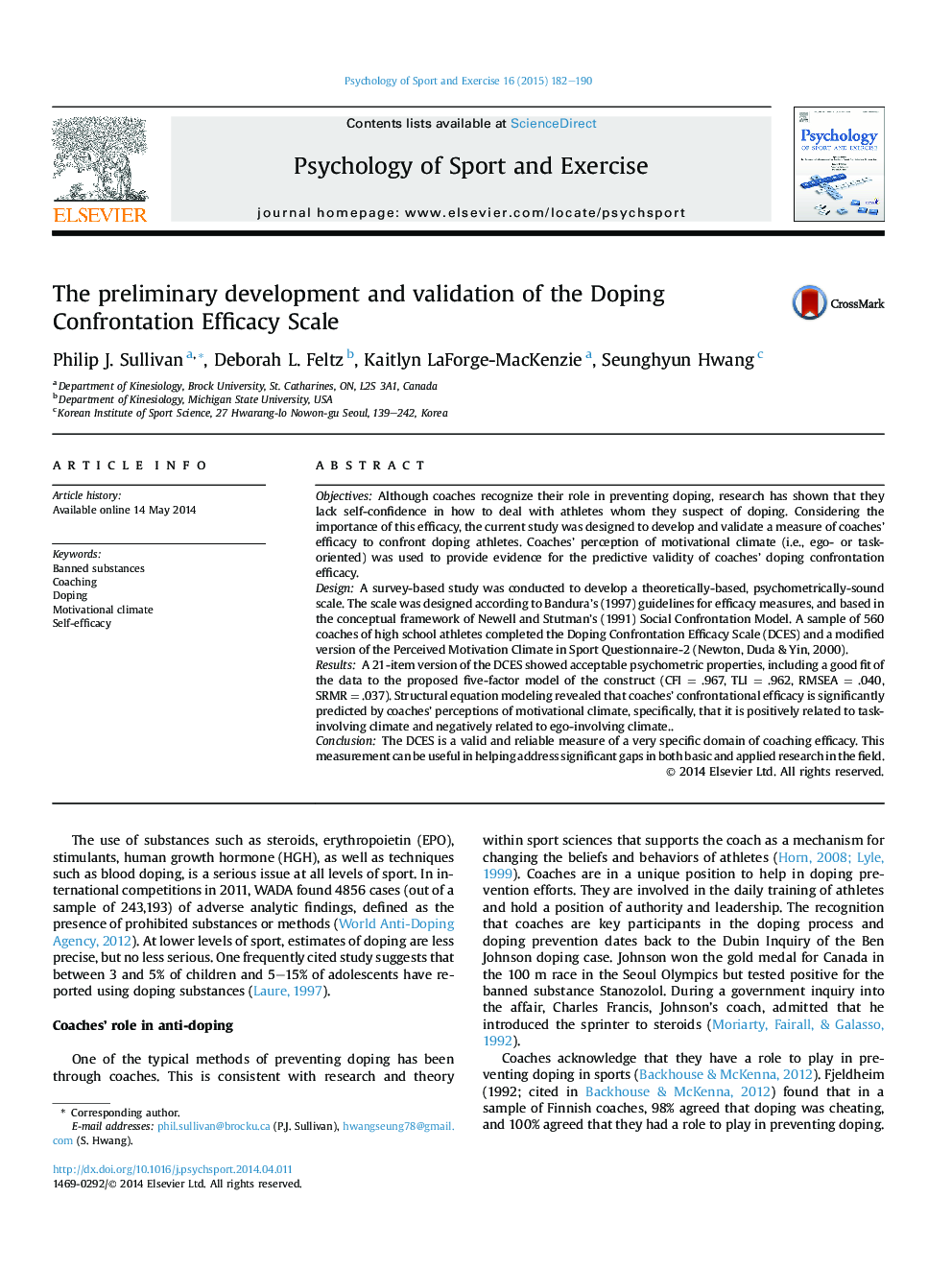| Article ID | Journal | Published Year | Pages | File Type |
|---|---|---|---|---|
| 894356 | Psychology of Sport and Exercise | 2015 | 9 Pages |
•The DCES is a theoretically-based scale for coaches' efficacy to confront athletes who dope.•This efficacy comprises 5 interrelated factors – legitimacy, intimacy, initiation, outcomes, and personal resources.•The 5-factor model possesses strong support for its psychometric qualities.
ObjectivesAlthough coaches recognize their role in preventing doping, research has shown that they lack self-confidence in how to deal with athletes whom they suspect of doping. Considering the importance of this efficacy, the current study was designed to develop and validate a measure of coaches' efficacy to confront doping athletes. Coaches' perception of motivational climate (i.e., ego- or task-oriented) was used to provide evidence for the predictive validity of coaches' doping confrontation efficacy.DesignA survey-based study was conducted to develop a theoretically-based, psychometrically-sound scale. The scale was designed according to Bandura's (1997) guidelines for efficacy measures, and based in the conceptual framework of Newell and Stutman's (1991) Social Confrontation Model. A sample of 560 coaches of high school athletes completed the Doping Confrontation Efficacy Scale (DCES) and a modified version of the Perceived Motivation Climate in Sport Questionnaire-2 (Newton, Duda & Yin, 2000).ResultsA 21-item version of the DCES showed acceptable psychometric properties, including a good fit of the data to the proposed five-factor model of the construct (CFI = .967, TLI = .962, RMSEA = .040, SRMR = .037). Structural equation modeling revealed that coaches' confrontational efficacy is significantly predicted by coaches' perceptions of motivational climate, specifically, that it is positively related to task-involving climate and negatively related to ego-involving climate..ConclusionThe DCES is a valid and reliable measure of a very specific domain of coaching efficacy. This measurement can be useful in helping address significant gaps in both basic and applied research in the field.
